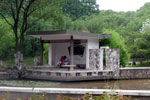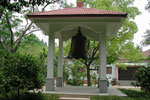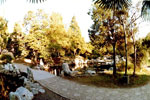Submission of proposals is now closed
The Asia-Pacific Network for Moral Education
Ninth Annual Conference
24-27 October 2014
Fudan University, Shanghai, China
Making Moral Education Work: Tradition and Innovation in the Asia-Pacific
Is moral education in Asia-Pacific societies working? What are its strengths and how might it be improved? What is new within moral education and how can innovative educational thinking and insights into moral development inform effective practice that engages with the most pressing moral issues facing Asia-Pacific societies? We know that traditional conceptions of morality and moral education are no longer taken for granted and that their contemporary relevance and role are increasingly being questioned and discussed. Does tradition have any place in a moral education framework tailored to meet and address today's issues and dilemmas? How should moral educators respond to and view new ways of living, scientific and technological developments, contemporary moral constructs and profoundly changing societies in our own region and beyond?
APNME's 2014 Conference will seek to address these questions and concerns. For example, conference presenters may explore whether a revival or re-statement of traditional moral education philosophy and pedagogy could help redress what is often seen as a decline in acceptance by the individual and society of the importance of values once held dear. They may also examine the relevance of traditional ways of thinking and being in a pluralistic and globalised world of changing moral values and standards, as well as the strengths and weaknesses of recent developments. Alternatively, they may deliberate on how some moral educators are drawing on rich sources of inspiration within their traditions to respond to the moral dilemmas that confront students, while others see themselves as giving birth to new models that better respond to the realities of teachers' and students' circumstances.
The Conference Organisers invite submissions of proposals for presentations related to the conference theme. Presentations may take the form of individual papers, symposia, round-table sessions or posters. APNME conferences seek to promote communication, networking and cooperation amongst Asia-Pacific moral educators and proposals for presentations which lend themselves toward dialogue and discussion, especially across cultural and disciplinary boundaries, are particularly welcome.
Individual papers (30 or 45 minutes): Individually submitted proposals allowing for up to 20 minutes presentation time (30 minutes session) or 30 minutes presentation time (45 minute session), followed by, respectively, 10 or 15 minutes open discussion. At the discretion of the Programme Committee, two or three presentations may be combined in one 90 minute session and the Programme Committee's decision as to time allocation is final. The Committee will invite and assign a Chair for each session;
Symposia (90 minutes): Cross-cultural, cross-disciplinary, or with a common topic or theme; organised by the submitter, who will typically be the session Chair; usually symposia will have 3 or 4 presenters, and perhaps a discussant, but must allow for interactive discussion with the audience;
Roundtables (90 minutes): Informal discussion groups on topics relating to the conference theme, e.g. at meal times or during the evening. The organiser will take responsibility for chairing an interactive discussion. Roundtables may also include discussion of textbooks and other materials; programme introductions and practices; guidance on use of assessment methods, etc.
Poster presentations: Relating to the conference theme; focusing on theoretical, empirical and practical work in progress. APNME will award its Annual Best Poster Prize for the best poster.











